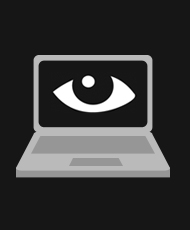
In the digital age that we live in today, we are constantly exposing our personal information online. From using cell phones and GPS devices to online shopping and sending e-mail, the things we do and say online leave behind ever-growing trails of personal information. The ACLU believes that Americans shouldn’t have to choose between using new technology and keeping control of your private information. Each week, we feature some of the most interesting news related to technology and civil liberties that we’ve spotted from the previous week.
Privacy Watchdog Complains to FTC: Google’s Social Search is Unfair [Mashable]
“Privacy watchdog EPIC filed a complaint with the FTC on Thursday, saying that Google is using its search engine to create an unfair advantage for its social network.”
Mobile Apps Quietly Steal Your Privacy [Information Week]
“Even though the splashy headlines around mobile security revolve around mobile malware, some security and privacy advocates warn that it might actually be the mundane apps people willingly download that introduce the most risk to their devices.”
Some dating websites do not remove GPS data from photos [Phys Org]
“…A class research project at the University of Colorado Boulder’s Leeds School of Business found that 21 of 90 dating websites the class examined did not properly remove location data from pictures uploaded by their users.”
Keeping “Your World” Private: Turning off Google’s New Private Search Results [ACLU Blog of Rights]
Want to keep your information private now that Google has started rolling out “Search, plus Your World,” a new search results format?
Reddit going dark for a day to protest SOPA online censorship bill [ars technica]
“On January 18, the online community at Reddit will go dark for 12 hours in opposition of the Stop Online Piracy Act now being considered in the House and its companion PROTECT IP Act in the Senate.”
See also: Will Reddit’s SOPA Blackout Make a Difference?
Blacklist Bills Becoming Hot Button Issue in 2012 Election [EFF]
“When Congress comes back into session at the end of January, both the House and the Senate are expected to make passing the Stop Online Piracy Act (SOPA) and PROTECT-IP (PIPA) a top priority.”
Learn more about dotRights: Sign up for breaking news alerts, follow us on Twitter, and like us on Facebook.




